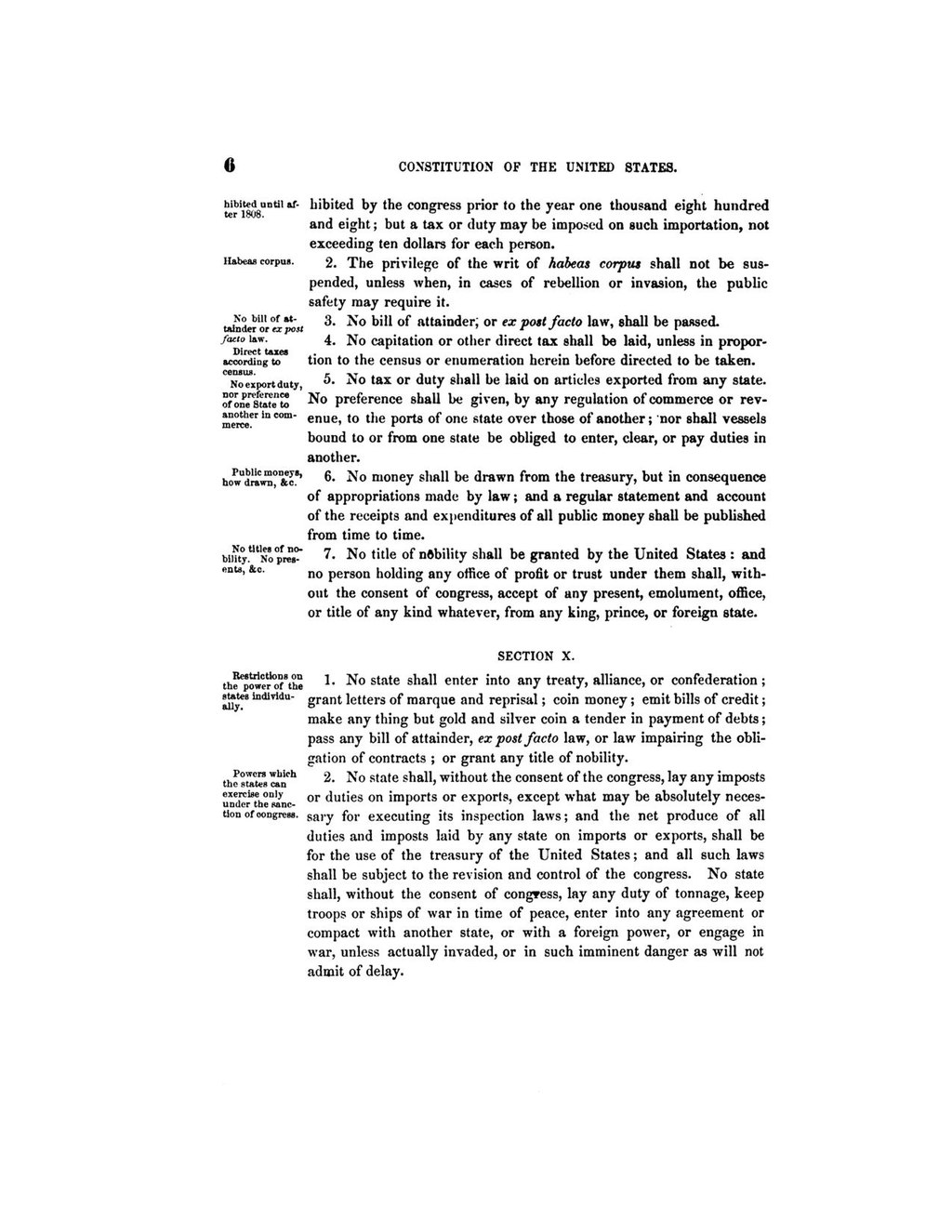hibited until after 1808. hibited by the congress prior to the year one thousand eight hundred and eight; but a tax or duty may be imposed on such importation, not exceeding ten dollars for each person.
Habeas corpus.2. The privilege of the writ of habeas corpus shall not be suspended, unless when, in cases of rebellion or invasion, the public safety may require it.
No bill of attainder or ex post facto law.3. No bill of attainder, or ex post facto law, shall be passed.
Direct taxes according to census.4. No capitation or other direct tax shall be laid, unless in proportion to the census or enumeration herein before directed to be taken.
No export duty, nor preference of one State to another in commerce.5. No tax or duty shall be laid on articles exported from any state. No preference shall be given, by any regulation of commerce or revenue, to the ports of one state over those of another; nor shall vessels bound to or from one state be obliged to enter, clear, or pay duties in another.
Public moneys, how drawn, &c.6. No money shall be drawn from the treasury, but in consequence of appropriations made by law; and a regular statement and account of the receipts and expenditures of all public money shall be published from time to time.
No titles of nobility. No presents, &c.7. No title of nobility shall be granted by the United States; and no person holding any office of profit or trust under them shall, without the consent of congress, accept of any present, emolument, office, or title of any kind whatever, from any king, prince, or foreign state.
SECTION X
Restrictions on the power of the states individually.1. No state shall enter into any treaty, alliance, or confederation; grant letters of marque and reprisal; coin money; emit bills of credit; make any thing but gold and silver coin a tender in payment of debts; pass any bill of attainder, ex post facto law, or law impairing the obligation of contracts; or grant any title of nobility.
Powers which the states can exercise only under the sanction of congress.2. No state shall, without the consent of the congress, lay any imposts or duties on imports or exports, except what may be absolutely necessary for executing its inspection laws; and the net produce of all duties and imposts laid by any state on imports or exports, shall be for the use of the treasury of the United States; and all such laws shall be subject to the revision and control of the congress. No state shall, without the consent of congress, lay any duty of tonnage, keep troops or ships of war in time of peace, enter into any agreement or compact with another state, or with a foreign power, or engage in war, unless actually invaded, or in such imminent danger as will not admit of delay.
